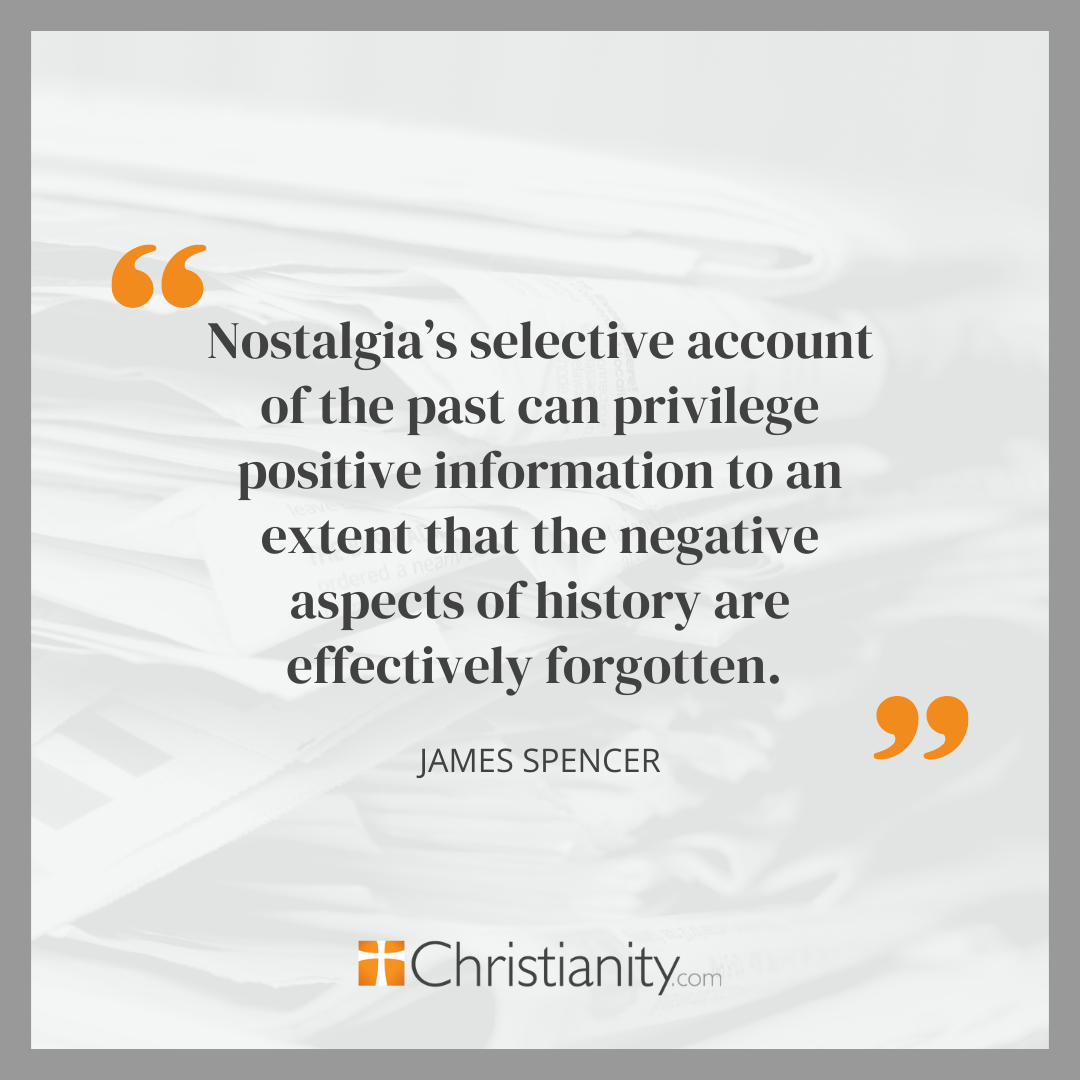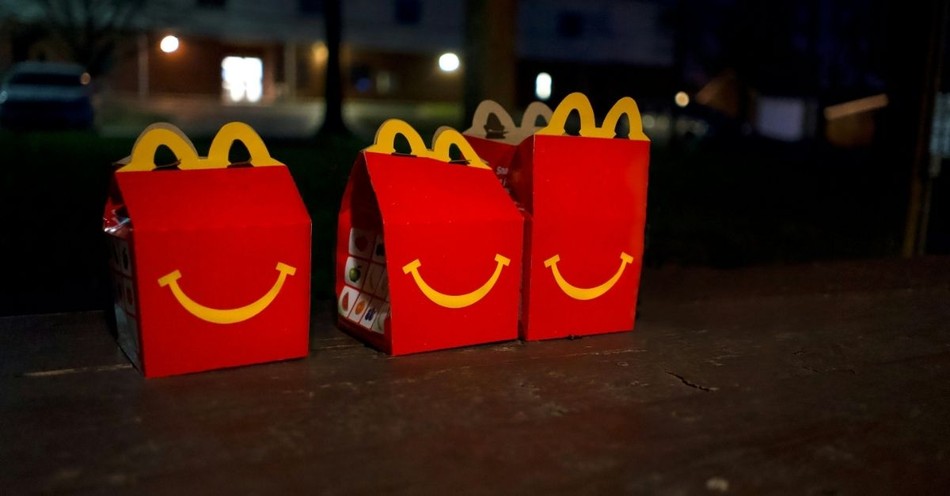McDonald’s was a big deal when I was a kid. The McDonaldland characters were far more common than they are today. Ronald, Grimace, and the Hamburglar were staples in the television ads for McDonald's. In my youth, I thought Happy Meals had some pretty great toys. You could even have a birthday party at McDonald's—not sure if they still do that.
Today, there is more competition. While I still prefer a hamburger from McDonald's over a taco or chicken sandwich, my kids don’t. Even when they were younger, they preferred to go somewhere other than McDonald's (though they still think the fries are unbeatable). Aside from Ronald McDonald, my kids wouldn’t know other McDonaldland characters like Grimace or Hamburglar. McDonaldland doesn’t carry the nostalgia for them that it does for me.
The new McDonaldland meals cater to the nostalgia of an older generation. While collectors of all sorts may be interested in the meals, the toys are collectible not because they have some intrinsic value—they aren’t high-quality toys—but because they appeal to a past when life felt simpler and more wholesome. The McDonaldland meals play into our nostalgia–a longing for some past period of time when
Is Nostalgia Good or Bad?
What we mean by “nostalgia” has changed over time. Its early usage referred to something more place-based, like homesickness, though we tend to use it with a temporal dimension that involves a longing for the past. That longing can be helpful or harmful depending on what aspect of the past is being remembered–how it’s framed–and why it’s being remembered.
Returning to McDonaldland meals, we have a relatively innocuous example of nostalgia. McDonald's calls those of a certain age back to a previous ad campaign to increase profits. Referring to characters many consumers remember isn't sinister. It’s not exploiting some deep hole in our souls. Instead, McDonaldland meals are trading on familiarity to increase profits.
So, if the McDonaldland meals aren’t a problem, what sort of nostalgia should we be wary of? We should be careful to avoid the sort of nostalgia that breaks from reality. As Jean Baudrillard notes, “When the real is no longer what it was, nostalgia assumes its full meaning.” Nostalgia, according to Baudrillard, isn’t a longing for an actual past, but for a constructed image of it–a picture of the past that has been so idealized that the burdens, injustices, discomforts, etc., that characterized reality are no longer remembered.
Baudrillard points to nostalgia’s dark side: a selective, terribly simple version of that past drained of nuance and stripped of complexity. As I suggest in Thinking Christian, “it is often the case that when we identify a problem rightly, we become so fixated on alleviating pain in the moment that we neglect the set of factors that predisposed us to developing the problem in the first place.” Nostalgia’s selective account of the past can privilege positive information to an extent that the negative aspects of history are effectively forgotten.
Treatments of nostalgia normally differentiate individual nostalgia and collective–or what is sometimes referred to as political–nostalgia. While it is possible to distinguish individual and collective nostalgia, the two are not separable. In many cases, they are mutually reinforcing.
Consider, for instance, the McDonaldland meals. They are both individual and collective. Individuals may have some sense of nostalgia about the various characters they loved from their youth, but the McDonaldland meal campaign depends on more than a single individual. Some critical mass of people needs to have similar nostalgia in order for the campaign to work on the various levels required for it to be successful. For example, the collectables offered as part of the new meal will be more valuable if not everyone who wants one can get one. Individuals have to remember, but a collective sense of the past is also necessary.
While McDonaldland meals are relatively harmless, nostalgia in politics is more problematic (or can be). In our current political landscape, for instance, we tend to see an almost wholesale rejection of nostalgia on the one hand–those who allow the evils of U. S. history to overshadow any positive aspects of that history–and an exaggeration of nostalgia on the other–a pristine rendering of history to which we are called to return. We might say that much of our political discourse has jettisoned any healthy form of nostalgia and embraced a negative form that is used to mobilize a base of support.
Is that an overly critical account of U.S. politics? Probably. It is broadly descriptive and, in my estimation, heuristic–a sort of mental shortcut. The description won’t always be true, but it provides us with “bookends” that help us situate various political actions and messages.

Nostalgia's Affect on Politics Today
As I’ve argued in Serpents and Doves, I believe Christian nationalism to be problematic. Christian nationalism assumes an idealized version of a so-called “Christian nation.” This idealized version assumes that the principles and people who founded our nation were virtuous, if not specifically Christian. While many argue that the United States was founded as a Christian nation, there is seldom any real interrogation of the label in popular discourse. I would simply argue that the terminology and, more importantly, the nostalgia for this imagined past need to be differentiated from (a) other uses of “Christian” as a descriptor and (b) the historical events, policies, and documents that don’t fit with the notion of a Christian nation. Note the following questions:
1. Are we saying the same thing when we use “Christian” to describe doctrine, worship, or baptism versus using it to describe a nation? I think not. In the former uses, Christianity involves the core theological convictions (doctrine), collective adoration of God (worship), and initiatory rites (baptism) of Jews and non-Jews united in Christ Jesus through faith. In the latter, we are referring to a general consensus of Christians and non-Christians about a set of moral laws and political arrangements informed and perhaps inspired by the Bible and Christian theology, but collectively abstracted from Jesus Christ.
2. How did we move from the nation’s beginnings to where we are today? If we began as a Christian nation, why didn’t we remain a Christian nation? Prior to 1790, Pennsylvania required a religious test for government service that involved professing “faith in God the Father, and in Jesus Christ, his eternal son, the true God, and in the Holy Spirit,” as well as acknowledging the Old and New Testaments as divinely inspired. In 1790, the statement was revised to allow Jews to serve in government.
Do I think Jews should have been barred from government service? No. I raise this example to highlight the way nostalgic accounts of our so-called Christian nation often flatten the complexities of history. Without denying concerted efforts away from religion, this early example demonstrates (a) the presence of more pragmatic reasons for shifts away from explicitly Christian policies and (b) the willingness of confessing representatives to remove doctrinal tests so that non-Christian citizens could have influence over the direction of the state.
In service to politics, nostalgia can become a rallying cry for a return to a fictionalized past. Even if one believes the United States was founded as a Christian nation, nostalgia must reckon with at least the following: (1) no system of government, law, or constitution can restrain evil forever–if even the Mosaic law given by God was weakened by human sin, not even the wisest manmade laws will be sufficient to fix the problem of human sin, (2) the New Covenant was established with the church–those who recognize Christ’s authority by learning to observe all he commanded–not with a nation whose laws are inspired by principles inspired by the Bible, and (3) reforming our nation is worthwhile but always provision and should never overshadow the more basic and enduring task of making disciples.
Nostalgia can be playful. It allows us to remember enjoyable moments from our past. McDonaldland meals inspire this sort of nostalgia.
Nostalgia, however, can also be problematic. We can construct a distorted version of the past –as, I would argue, in the case of the “Christian nation” narrative. When we become so enamored with some idealized rendering of the past that we close ourselves off to counterevidence, we lose ourselves in a fiction.
For Christians, nostalgia can also function theologically. We are a people who look backward and forward. Our future hope is rooted in the past–particularly in God’s saving acts recorded in Scripture and fulfilled through Christ’s life, death, and resurrection. That hope shapes our present obedience. Longing for the great acts of God, while recognizing that He continues to live and act today, is theological nostalgia. This sort of nostalgia clarifies our vision of what we are truly longing for: not a return to some national golden age, but the restoration of all creation where we will live in the presence of God forever.
Photo Credit: ©Unsplash/Meghan Hessler





